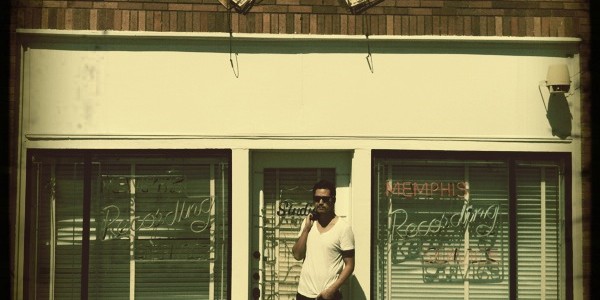Introducing… Dirty Beaches
Our Introducing... series focuses on artists who we think are worth shouting about. Here we have Dirty Beaches, a purveyor of electronica with rockabilly samples.
 Here at Bearded we aim to shed light on acts who don't necessarily have giant labels or muscley budgets waving banners behind them. This Introducing series will focus on artists who we think are great and worth shouting about, regardless of how much hype surrounds them or where their origin story lays.
Here at Bearded we aim to shed light on acts who don't necessarily have giant labels or muscley budgets waving banners behind them. This Introducing series will focus on artists who we think are great and worth shouting about, regardless of how much hype surrounds them or where their origin story lays.Bio
Name: Dirty Beaches
Location: Montreal, Canada
Genre: Lo-fi electronica
Similar Artists: Pure X, Maria Minerva
Contact: Facebook
Events: New album Drifters/Love Is The Devil out 20th May
Taiwan-born Alex Zhang Hungtai, better known by his Dirty Beaches alter-ego, has built a loyal and steadfast following on the other side of the Atlantic, brandishing razor-sharp electronica imbued with strident, lavish snippets of commonplace Americana. He skews and hacks at rockabilly titbits and hip-hop loops, mutating the samples beneath a swarm of fuzzy, chilled out psychtronica synths. Perhaps it's that obsession of North American music that's held off his invasion of the UK – after all, blues, Motown and country never really took off here.
He's set to release his fifth studio album come 20th May, entitled Drifters/Love Is The Devil and this time around his record is set to shake a few foundations. It's a double album recorded between Montreal and Berlin, one half divulges his instrumental instincts and is home to warped soundscapes and arthouse film drones, the other half features his signature method of brutal and beautiful blends of genres and vocals. It's all knotted together with thematic undercurrents – it documents a period of self-reflection for Hungtai, a time spent touring where he began to question life, love and the cities he visited. He's exploring two segments of the same world – there's a deep, meditative aura where he dissects his own misfortune and regrets, but there's also part where he studies hedonistic urges and the thrill of urban life. Ultimately, it's a voyage of self-discovery. It's about as intimate as you'll ever find in avante-garde electronica.
Dirty Beaches is an intensely visual project, and Hungtai's passion for film reveals itself often; in the majority of his music there is a narrative worming its way through the noises, not necessarily an overt story told through lyrics (although he has tread that territory), but an emotional ride told via the sonic arts, where gists of emotion osmose, filtering through his music into your mind. He prefers to create his own music videos, allowing himself to fuse his two chosen media together into one art form. Aside from his own albums and tracks, he's also an avid soundtracker, providing the OST for films like Waterpark and The Hippo, among others. Hungtai's music often exudes feelings of loneliness and introspection. He's a big fan of Chinese auteur Wong Kar-wai. Hungtai has described Wong's movies as "about the passage of time, and how in relation it distorts your relationship with everything else in life. The central Dirty Beaches character is a product of those experiences. Of someone travelling long distances in search of something, in exile, misplaced, with no home to return to."
Over the years Hungtai has veered away from the sample-heavy work of his previous endeavours such as 2011s Polaris nominated Badlands, tending to lean more on semi-improvised works. The snapshots of Americana and rockabilly still exist, but it's diluted amongst sparse, often barren soundscapes which favour drawn-out emotional experiences over bitesize pop gratification. Sometimes the sounds will demand time and attention, but after all is said and done, and the notes have long faded, the trance-like state of being will stick in your head far longer than any brief hook will. Hungtai is an experimental artist who will toy with ideas seemingly on a whim – the reasoning behind certain tangents may not be immediately evident, but when the tracks, or indeed albums, are lined up next to each other, the critique of modernity slips into sharper focus. He's not lambasting contemporary culture, merely questioning it, investigating it and using it as a tool to diagnose the human condition.
Dirty Beaches isn't necessarily the lightest act you'll encounter, and some of his work requires a tremendous amount of internal monologuing – dissonant, clarion saxophones, ambient screams and pulsing heartbeats aren't the most Top 40 friendly sounds you'll ever hear – but it's music that's worth getting to know. Take a moment out of the ratrace to trek through your subconscious with Hungtai.





 All Content RSS Feed
All Content RSS Feed
Follow Bearded on...